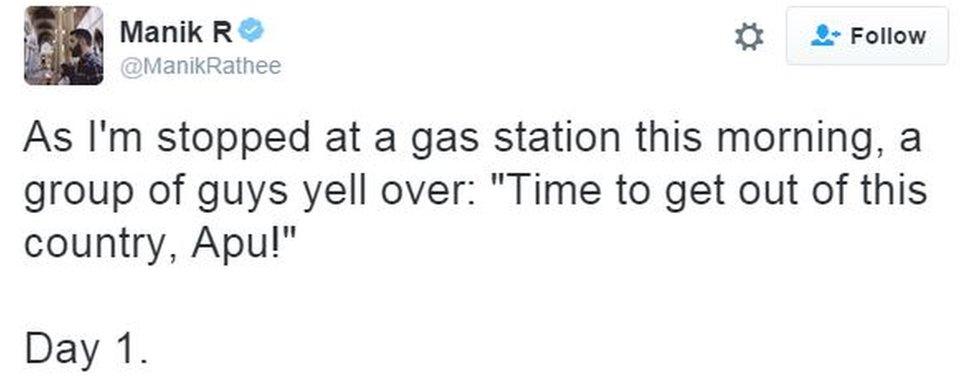Why are people wearing safety pins after Trump victory?
- Published
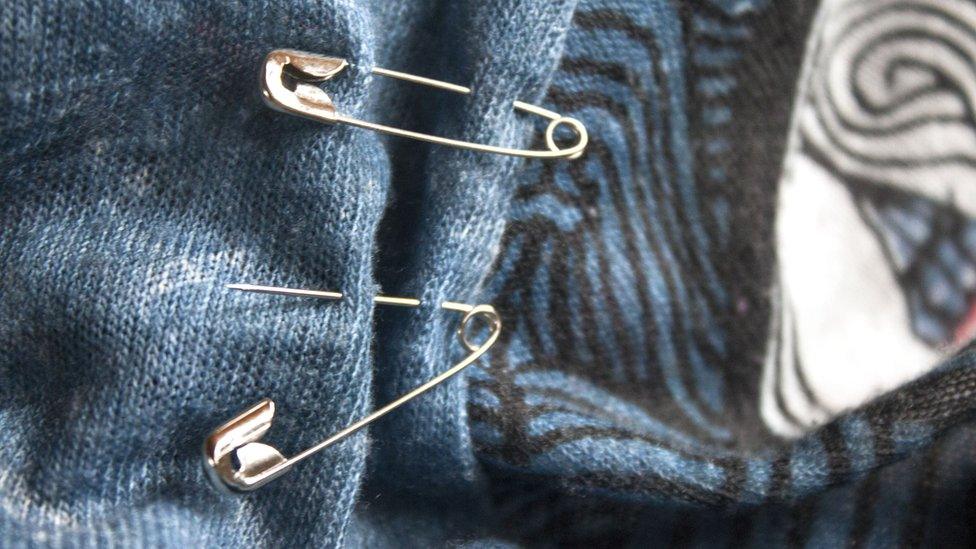
Safety pins were used as a show of solidarity after cases of abuse in the UK after Brexit
Safety pins have again become a symbol of solidarity with victims of racist, religious or homophobic abuse, following alleged attacks in the US in the wake of Donald Trump's election win.
The idea of wearing a safety pin as a political message was used in the UK after the vote there to leave the European Union, following an increase in alleged cases of hate crime.
The Republican said in his victory speech that he would be a "president for all Americans".
But the billionaire ran a campaign in which he made remarks that offended Muslims, Latinos, women and the disabled, among others.
Hours after his victory, alleged cases of abuse against minorities were reported in many US cities.

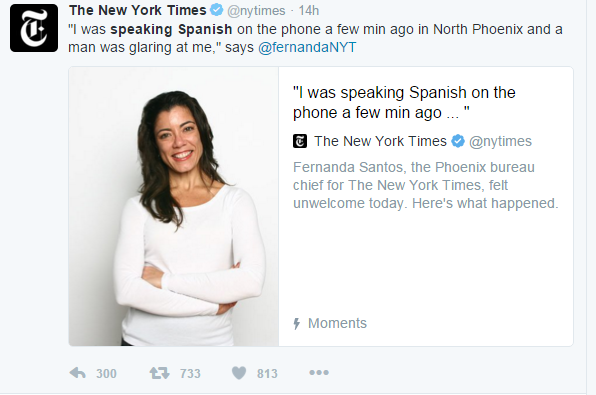
In California, authorities were investigating the reported attack of a Muslim student wearing a headscarf at the San Diego State University campus by two suspects. They allegedly made comments about Mr Trump's election.
Officials said the assault, external on the woman, who was wearing a hijab and was not hurt, happened in a parking complex. The suspects stole her car keys, and the vehicle was later reported missing.
Police were also investigating spray-painted obscene messages in South Philadelphia, the Philly Voice reported., external Pro-Nazi graffiti was also spotted - it was not clear if the cases were related.
There was also at least one false claim. In Louisiana, an 18-year-old student admitted she fabricated a story that two white men, one wearing a Trump hat, had attacked her near the University of Louisiana campus hours after the Republican's victory. She gave no reason for the false account.
There were also cases of violence against Trump voters. Police were investigating an incident in Chicago, where a man was beaten after a traffic incident, with bystanders yelling "Don't vote Trump". A video of it, external has gone viral.
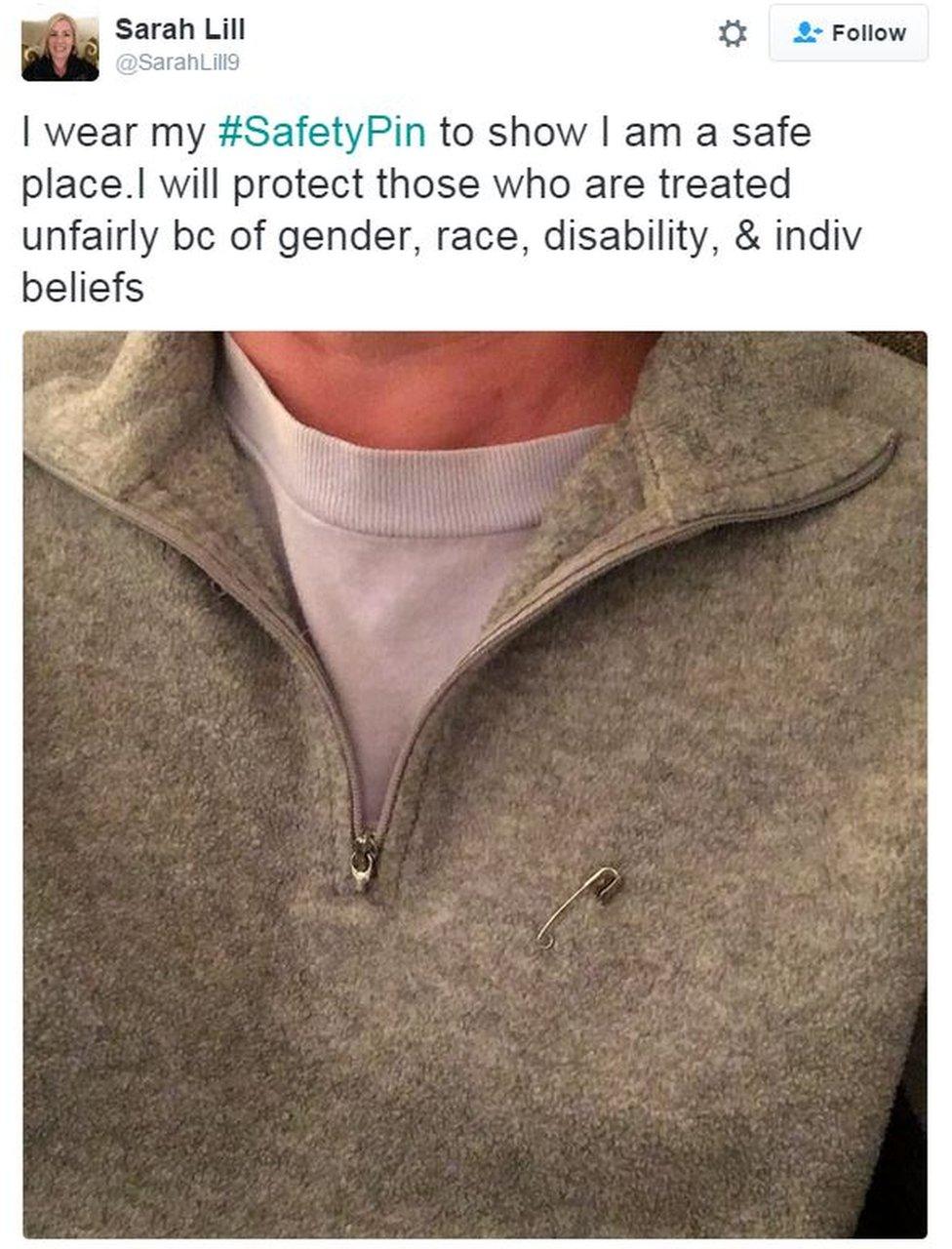
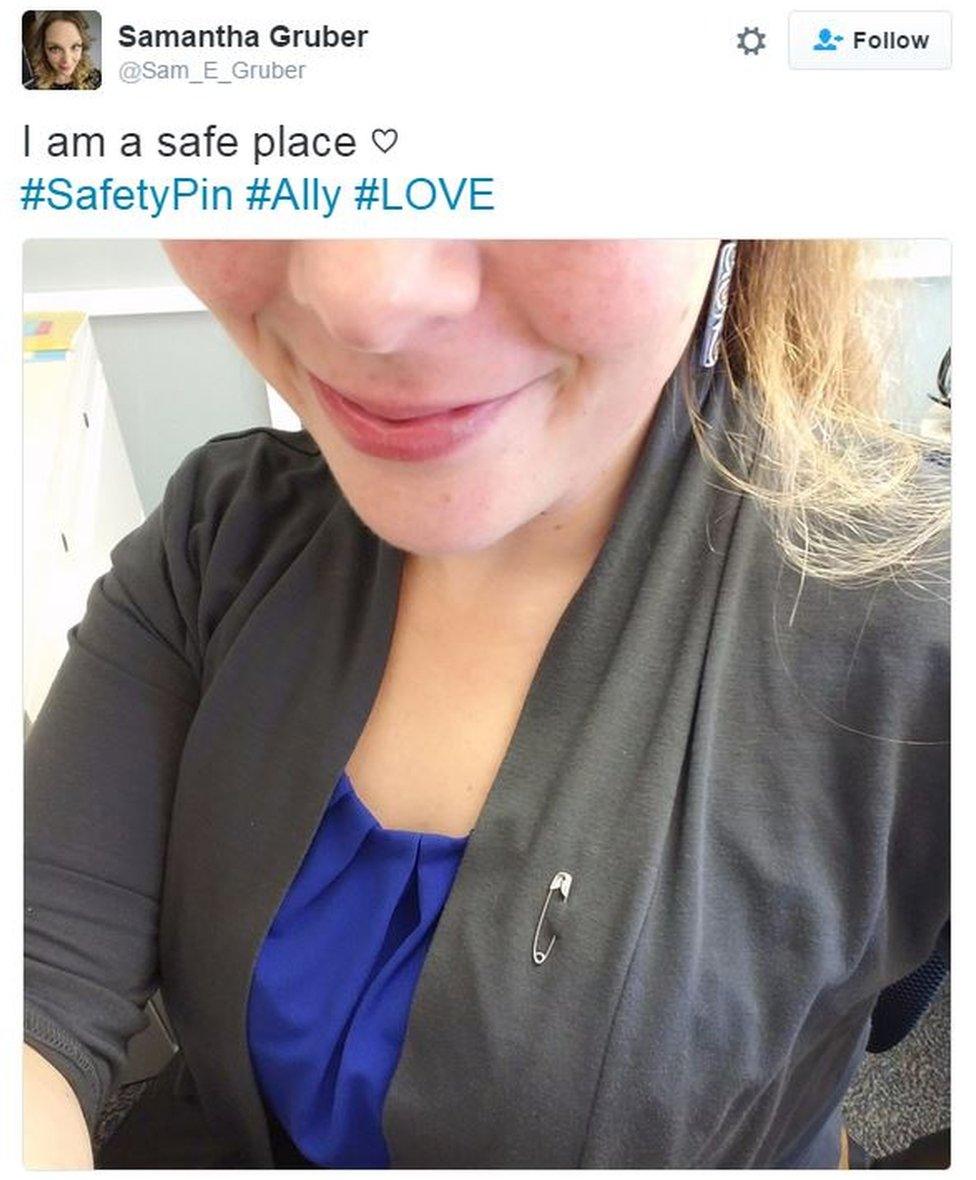
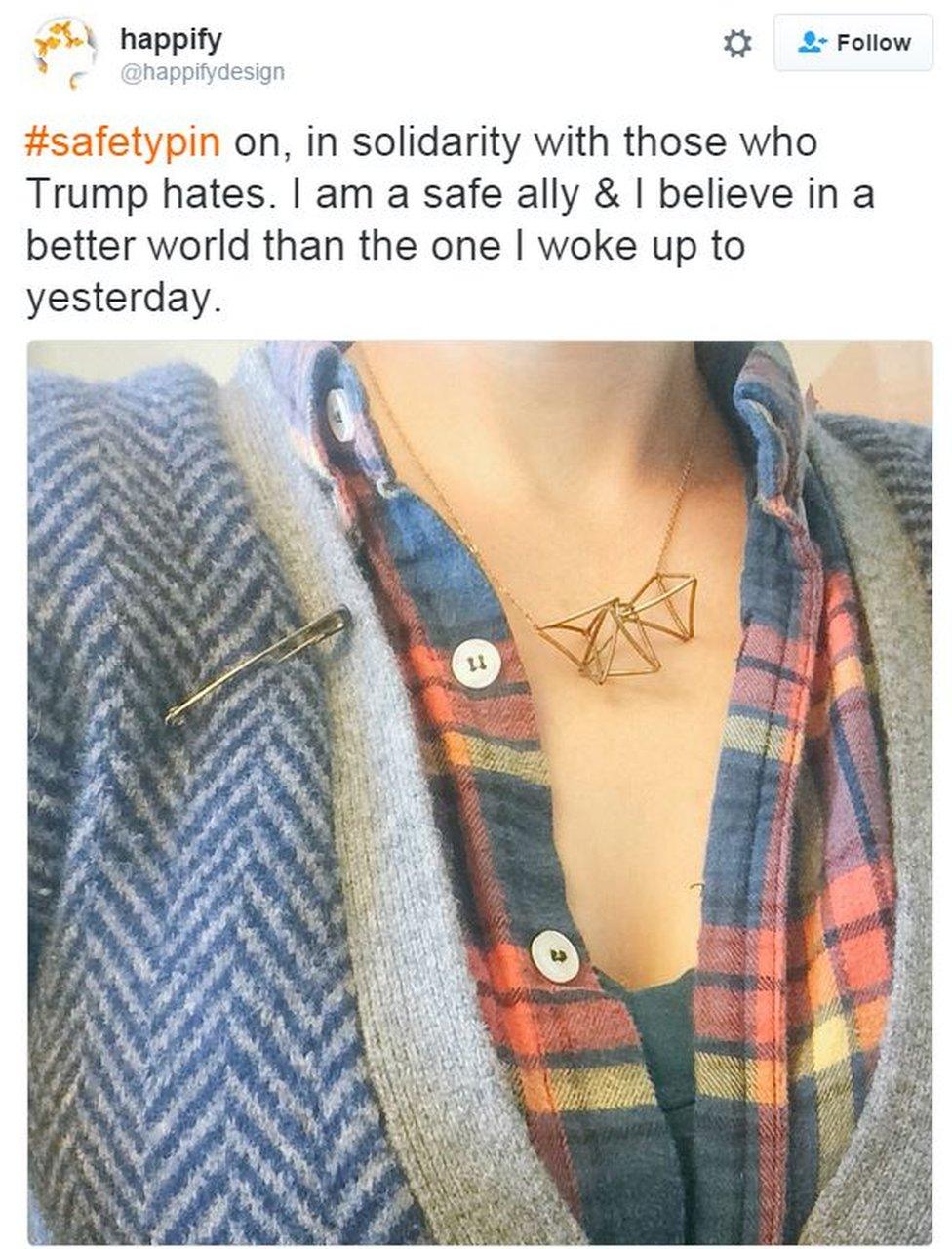
Safety pins were first used as a symbol of unity and hope back on World War II, when the Netherlands were invaded. The Dutch wore them under their collar to show loyalty to the queen and not be persecuted by the Nazis.
